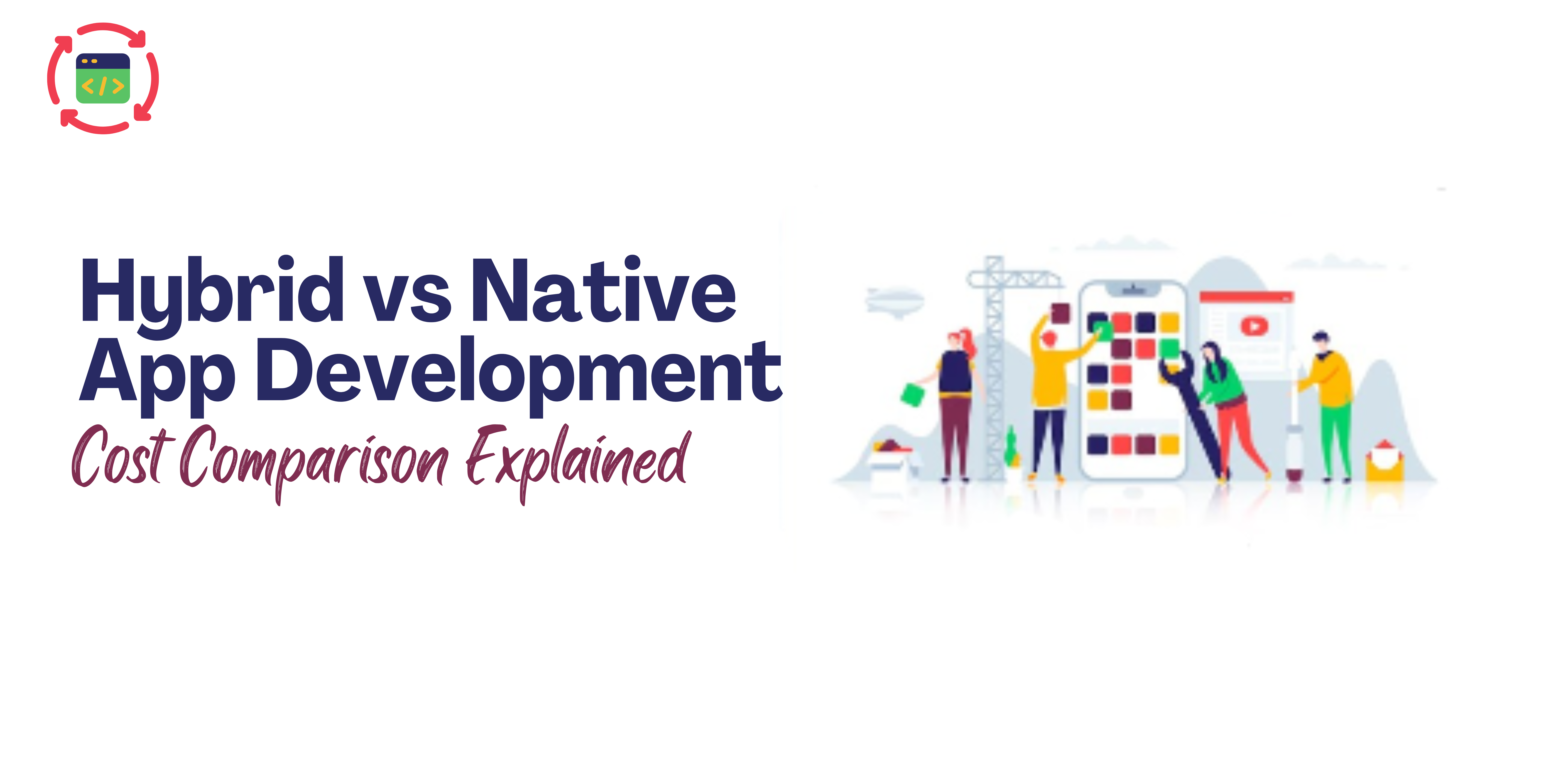For every business, whether small or well-established, the cost of development is the primary factor. It means, that besides features and functionalities, how much it takes to build a mobile app plays an essential role in decision-making. It is always advisable to weigh the available options and choose the best option that suits your goals and budget. After all, it does not make sense to spend lavishly on just a mobile app.
Please remember, that the choices you make today for your business will have repercussions later. Based on your decision, your online business will either sail or fail. If you go for Native or cross-platform mobile app development, make sure it resonates with your objectives, goals, and budget.
When it comes to Hybrid App vs. Native App development, people have different opinions. Some favor Native development as a cost-effective way to create mobile apps, whereas others believe Hybrid app development is best for saving money.
Too confusing, right?
Therefore, to help you make the right decision, we will break down the cost of both Native and Hybrid app development. Let us explore which is the best way to create a budget-friendly mobile app.
Hybrid app vs. Native app
First of all, we will look at aspects that determine the cost of your mobile app development. They are:
• The type of mobile application (business, social networking, game, fitness, e-commerce, lifestyle, and on-demand app)
• The platform you are creating an app for, such as Android, iOS, Windows, etc.
• Whether you want basic, individual, or custom design.
• The number of pages in your mobile app.
• The coding language you are choosing to build your mobile app.
• Infrastructure & features
• Multi-platform support
• The method of distribution
• Access to Native device APIs

Hybrid app development
Talking about Hybrid app development, it has all the features of HTML5. However, it does not include attributes of a Native app. In this, a wrapper builds a gap between platforms while offering the Native features.
For building Hybrid apps, the developer uses HTML, CSS, and JavaScript to write back-end code. On the other hand, front-end code uses Webview. One of the primary advantages of Hybrid apps is that one app works with all platforms. As a result, the development is faster and leads to quick time-to-market.
It has a drawback that mobile app customization is not as easy as Native apps. However, if you want to customize your Hybrid app, it requires a lot of money. In simple words, if customization is your priority, Hybrid mobile app development will be more costly.
Native app development
Native mobile app development works differently from Hybrid. For example, it uses specific platforms, so developers pick programming languages acceptable to the platform. For iOS apps, the languages that Native developers use are Objective-C and Swift. On the contrary, Java and Kotlin are popular scripting languages for Android apps.
Native apps are preferred in the app market because they are high-performing. Even users like using Native apps over others, as they are highly responsive and fast-loading. Hence, compared to Hybrid apps, Native apps are intuitive and interactive. It boosts the overall user experience and leads to more sales.
It creates separate apps for each platform, Android and iOS. As a result, Native app development is more expensive and time-consuming.
Comparing the cost of development
• Development efforts – Comparing the Hybrid and Native app development, the amount of effort required for development is the same. Also, in Hybrid development, you have to deal with problems that come from two different systems. Thus, it makes fixing bugs more expensive and complicated.
• Development time – Many of you know that Hybrid developers use the same codebase for Android and iOS platforms. It saves both money and time compared to Native app development.
• Maintenance – Hybrid app development is dependent on third-party tools for bug fixing, such as Xamarin, Cordova, React Native, etc. It means maintaining Hybrid apps is more expensive than Native.
• Customization –As mentioned already, building customized Hybrid mobile apps requires more money. Also, when it comes to customization, Hybrid apps are not as flexible as Native apps.
In closing
Based on the above discussion on the development cost for Hybrid App vs. Native App, it is clear that there is no fixed price for either of them. The cost of mobile app development depends on various factors like the choice of programming language, customization, the type of mobile app, and many more.
However, it is understandable that though the initial investment is more Native app development, in the long run, you save more money. So, choose what suits your business goals, needs, and budget. If you think a Hybrid app is an ideal solution for your start-up, hire the best Hybrid mobile app development company.
If you are searching for a reliable company that helps you develop a Hybrid mobile app at a competitive price, contact SoftProdigy. We have years of experience in building top-notch mobile apps, both Native and cross-platform.











